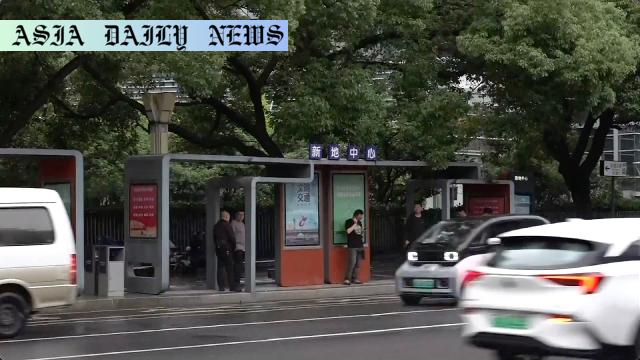Chinese court sentences man to death for brutal attack on Japanese school children in Suzhou, sparking heightened concerns.
- A Chinese court sentenced a man to death over a school bus knife attack in Suzhou.
- The court deemed the crime heinous, killing one and injuring two others.
- The attacker reportedly acted due to financial distress and despair.
- Japanese schools in China have since tightened security measures.

Introduction to the Tragic Incident
A Chinese court has handed a death sentence to a man in his 50s, accused of a knife attack on a bus carrying Japanese schoolchildren in Suzhou, Jiangsu Province. This brutal act, which occurred in June last year, resulted in the death of a Chinese female bus attendant and injuries to a Japanese mother and her child. The sentencing was delivered at a local court on Thursday, with high significance due to the nature of the crime.
The Heinous Nature of the Crime
The court described the attack as “extremely heinous” and a severe threat to the safety of society. This violent act targeted a school bus—an environment usually considered safe and secure for children. The motives of the attacker, reportedly fueled by despair from financial distress and personal debts, highlight a concerning trend of crime linked to mental health and financial issues.
Details of the Legal Proceedings
The trial, which lasted only ten minutes, resulted in a swift decision from the court. Japanese media outlets were excluded from attending the proceedings, though the Japanese Consul-General in Shanghai, Okada Masaru, observed the trial. The lack of references to Japan in the judicial process might raise questions about the court’s priorities in addressing crimes against foreign nationals.
Security Concerns for Japanese Nationals
This incident, along with a subsequent attack on a Japanese schoolboy in Shenzhen, Guangdong Province, underscores growing security concerns for Japanese citizens living in China. Parents, schools, and governmental authorities are now reassessing safety measures to protect children from such incidents. The Japanese Foreign Ministry has called for improved vigilance and security protocols in the wake of these tragedies.
Greater Implications and Social Issues
Beyond this specific incident, the case has broader implications for society. While justice appears to have been served with the death sentence of the attacker, the underlying causes of such violent behavior—particularly financial hardship and mental health—still need to be addressed. Moreover, the exclusion of the Japanese media from witnessing the trial raises transparency concerns for crimes involving international victims.
Future Preventative Measures
Following this attack and other recent incidents, Japanese schools in China have increased their security measures, adding guards and reviewing safety protocols. Despite these improvements, fear persists among the Japanese community as they navigate safety concerns for their children. Japanese authorities continue to stress the importance of proactive measures to ensure safety while also engaging in dialogue with their Chinese counterparts to foster better security cooperation.
Conclusion
The death sentence handed to the Suzhou attacker represents a legal resolution to a deeply troubling event. However, these incidents emphasize the need for a broader societal response to prevent similar tragedies in the future. Greater collaboration between Japan and China, addressing financial and mental health crises, and fostering transparency in trials involving foreign victims remain essential for ensuring security and justice.



Commentary
Reflecting on the Tragic Attack
The knife attack on the Japanese school bus in Suzhou is a harrowing reminder of the vulnerabilities society faces when individuals are pushed to the brink by personal despair. While justice has been served with the death sentence, it is hard to ignore the deeper social and systemic issues at play. The economic pressures and mental health struggles cited as the perpetrator’s motive suggest a need for stronger societal support systems to prevent people from reaching such extremes.
Importance of Safety for Foreign Nationals
Incidents targeting Japanese citizens in China underscore the growing security challenges that expatriates face. Schools, which should be sanctuaries for children, have been thrust into the spotlight, forcing institutions to prioritize safety over normal activities. It is reassuring to see increased security measures being implemented, but the underlying fear within the community remains palpable and demands long-term solutions.
Transparency and International Cooperation
Another prominent issue raised by this incident is the exclusion of Japanese media from the trial. In cases involving international victims, transparency is essential for fostering trust and ensuring fair treatment of all parties involved. Greater cooperation between the Chinese and Japanese governments can help address these concerns while showing solidarity in protecting citizens from harm.
Ultimately, while the justice system has acted decisively, this event should serve as a wake-up call to address the root causes of such tragedies. By fostering economic stability, improving mental health services, and increasing international collaboration, societies can work toward ensuring such devastating incidents never occur again.